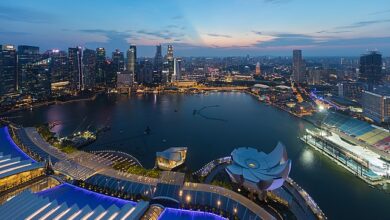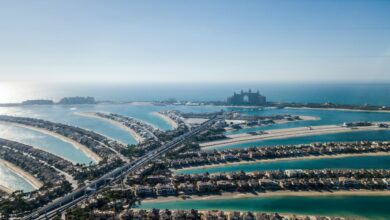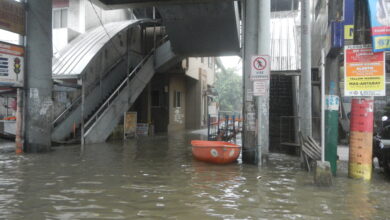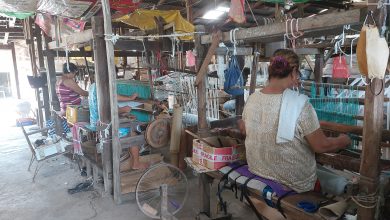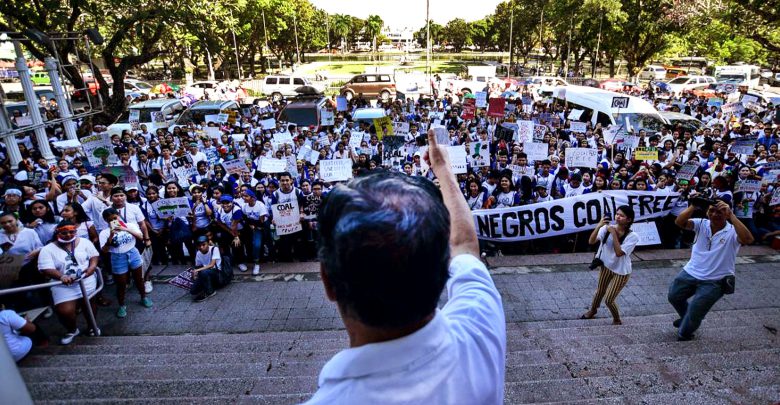
Youth and Church leaders push for coal-free, more sustainable Negros
“It not now, then when? If not us, then who?”
A movement for sustainability is brewing in the south of the Philippines, with Negros Island leading the charge.
Considered as the country’s renewable energy hub, San Carlos City in Negros Occidental has been pushing for cleaner and more eco-friendly sources of power for years.
The past year has proven that the city is committed to a more sustainable future. A proposed coal-fired power plant in the city has been met by opposition by different sectors, with the youth and church leaders at the forefront.
San Carlos City’s bid for renewable energy
It all started with the decline of the country’s sugar industry in the 80s. As a result, San Carlos shifted its focus from sugarcane plantations to exploring different avenues for sustainable energy.
From what started as an alternate industry to boost the economy, this shift transformed into an advocacy which made the city pioneer of renewable energy production in the Philippines.
Hence, San Carlos is now home to four renewable energy facilities. These include San Carlos Bioenergy, Inc.’s 5-megawatt bioethanol power plant, San Carlos Solar Energy, Inc.’s 45-megawatt solar power plant, San Carlos BioPower, Inc.’s 19-megawatt biomass plant, and AbiotizPower subsidiary San Carlos Sun Power, Inc.’s 59-megawatt solar power farm.
Today, there are efforts pushing for renewable energy equipment for residents and businesses in the city.
Coal-fired power plant eyed for San Carlos
In August of 2018, SMC Global Power Holdings Corp., a subsidiary of conglomerate San Miguel Corp., was given the go-signal by the Department of Energy (DOE) to conduct a grid impact study for a 300-megawatt coal-fired plant in San Carlos City.
The study is for what is known as a CFB (or circulating fluidized bed) coal-fired power plant. CFB is a new technology for coal combustion which lessens the emission of pollutants. Up to 95% of pollutants can be absorbed before being emitted to the atmosphere.
Proposal for coal-fired plant opposed by Negros Dioceses
In November of the same year, the bishops of the four Roman Catholic dioceses in Negros Island issued a collegial statement expressing their opposition to this development. These Bishops were:
- Gerardo Alminaza of the Diocese of San Carlos
- Patricio Buzon of the Diocese of Bacolod
- Louie Galbines of the Diocese of Kabankalan
- Julito Cortes of the Diocese of Dumaguete
In the statement, the Bishops called on the people to unite and be firm in their opposition to any coal-powered power plants. This was in line with Pope Francis’ encyclical letter calling for ecological conversion. The Vatican is advocating reducing consumption of coal and other fossil fuels that contribute to climate change.
Governor supports ban on coal-fired plant
Negros Occidental Governor Alfredo Marañon, Jr. expressed his support for this move. Above all, he reminded that he had proposed ordinance disallowing the exploration, establishment, and operation of any coal-fired power plant in the province.
However, the Provincial Board (PB), who held a joint committee meeting to review the proposed ordinance, cannot yet make a concrete stand on whether to act on the proposal.
Third District Board Member Manuel Frederick Ko, said that there is a need consult all stakeholders “in order to have a holistic approach to the issue.”
Fight for sustainable future still ongoing
Last March 6, 2019, Marañon announced that he signed an Executive Order (EO) declaring the entire province as coal-free. Also, demonstrations outside the provincial capitol in Bacolod City commenced. 2,000 protesters, mostly students, called on the PB to ban coal-fired power plants in the province.
A coalition of five youth groups in Negros Occidental has been conducting demonstrations every Wednesday since February of this year.
Named Youth for Climate Hope (Y4CH), the coalition rejoiced when Marañon announced his EO. Even though it was not yet law, the group acknowledges that it is a “strong policy statement” which could translate into stronger ordinances.
Student Leader Krishna Ariola said that Negros Occidental can be a “model province” for renewable energy in the country. She calls on the youth in the province to support this push for cleaner sources of energy.
“We are all in this together. Let’s not wait for the day when it becomes too late to act,” said Ariola.
Negros as the bastion of sustainable energy for the country
With the support of their Provincial Board, Marañon’s ordinance could eventually be passed as law, keeping San Carlos City coal-free.
Furthermore, the situation remains hopeful, as a similar ordinance was passed in neighboring Negros Oriental. In 2018, the Provincial Board of Negros Oriental issued a resolution banning the use of coal as a source of energy in the province.
As of writing, Negros Oriental has two geothermal power plants. Looking to join them are several other renewable energy projects. Three are hydroelectric plants, and other projects include solar and wind-powered plants now securing permits and negotiating project financing.
What a coal-free Negros means
At the very least, the passing of the coal-free ordinance in Negros Occidental will only further contribute to the clean energy initiatives of the region. And at best, it sets a brilliant example for other cities and provinces to follow.
Finally, a more sustainable future seems visible for the Philippines. We should be grateful that we have Negros Island and its people leading the way.

